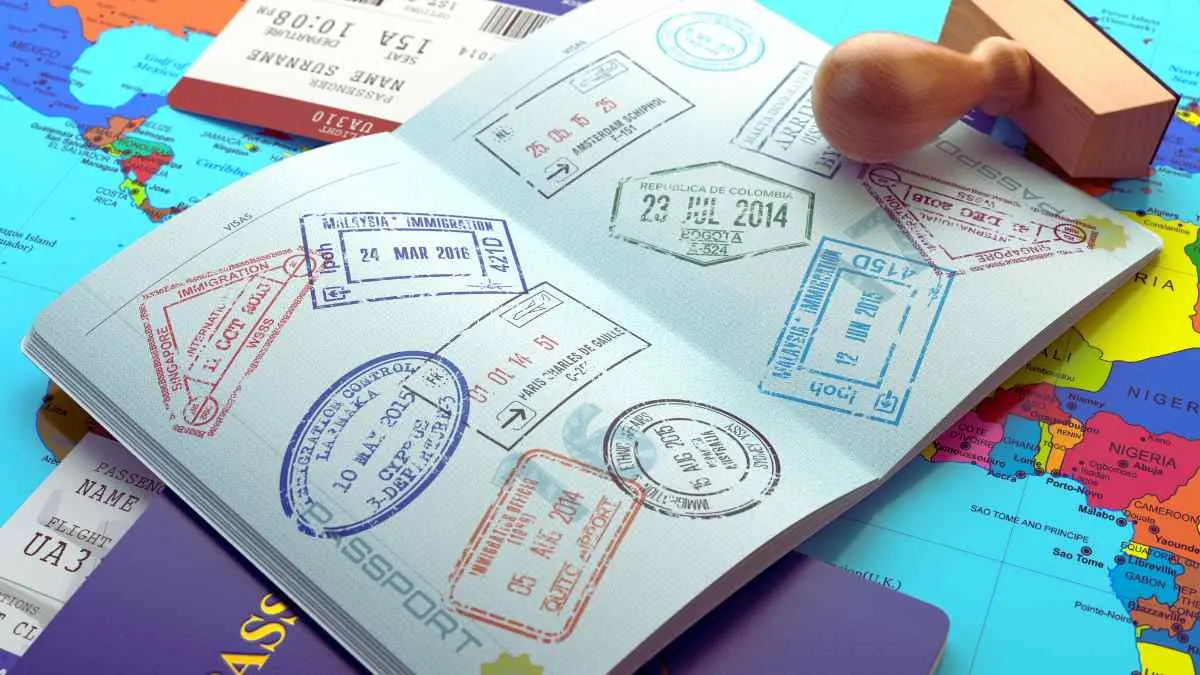Traveling abroad is an exciting experience, but it comes with its own set of responsibilities.
One of the most crucial items you’ll carry during international travel is your passport. It’s your ticket to freedom, but keeping it safe and secure while traveling can sometimes be a challenge.
When Traveling Abroad What To Do With Passport? Find what you should do with your passport when traveling abroad, from storing it safely to handling it at immigration checkpoints.
Why Your Passport is So Important:
Your passport is more than just a document with your picture on it—it’s your proof of nationality and an essential tool for crossing borders. It allows you to legally enter and exit countries, prove your identity, and access consular services if something goes wrong. Without it, you’d be stranded and unable to board international flights, so it’s crucial to treat your passport with care and ensure it’s always accessible but secure.
Before You Leave: Important Steps to Prepare Your Passport
-
Ensure Your Passport is Valid
Before booking your trip, always check the validity of your passport. Many countries require that your passport be valid for at least 6 months after your arrival date. Failing to check this can lead to delays or even denial of entry into your destination country.
-
Make Copies of Your Passport
It’s always a good idea to have copies of your passport in case it gets lost or stolen. Photocopy the first page, where your details are listed, or take clear photos of it with your smartphone. Store the copies separately from your actual passport—consider keeping one in your luggage and another with a trusted friend or relative back home. Additionally, some travelers store digital copies in their email accounts or secure cloud storage for easy access.
-
Register Your Travel with Your Embassy
Many countries have a travel registration system where you can register your trip with the embassy. This service allows your government to contact you in case of an emergency. For example, in the event of a natural disaster, political unrest, or other unforeseen events, embassy staff can reach you and offer assistance.
During Travel: Best Practices for Handling Your Passport
-
Keep Your Passport Close, But Not Too Close
While it’s essential to keep your passport accessible, you should also ensure it’s stored securely. A money belt, neck pouch, or a travel-safe bag is a great option for carrying your passport while exploring new places. Never leave it in your pocket when going out—it’s always better to store it in a secure, concealed place.
-
Avoid Leaving Your Passport in Hotel Rooms
Never leave your passport exposed or in easily accessible areas like hotel rooms or rental cars. Use the hotel safe or a portable travel safe for storing your passport and other valuables when you’re out sightseeing. If your hotel lacks a safe, lock your passport in your luggage and ensure it’s hidden from view.
-
Carry Only What You Need
When you’re heading out for the day, carry only the necessary documents. In most cases, a photocopy of your passport and an ID should be enough. Avoid carrying your original passport unless you plan to cross borders, enter airports, or need it for official purposes.
Read Next: 3 Free Events In Sarasota This Weekend
What to Do If Your Passport Gets Lost or Stolen:
Losing your passport while abroad can be a nightmare, but don’t panic. There are several steps you can take to resolve the situation:
-
Report the Loss to Local Authorities
If your passport is lost or stolen, report it to the local police immediately. You’ll need a police report to apply for a replacement passport. In some countries, this report is required for insurance purposes as well.
-
Contact Your Country’s Embassy or Consulate
Once you’ve filed the police report, contact your embassy or consulate to request a replacement passport. Many embassies offer emergency passport services, which allow you to continue your trip while waiting for a new passport to be issued. They may also assist you with travel documents that can get you back to your home country.
-
Prepare for the Passport Replacement Process
When applying for a replacement passport, you’ll need to provide identification, the police report, passport-sized photos, and proof of citizenship (e.g., a birth certificate or driver’s license). Be aware that it may take several days or even weeks to receive a replacement passport, depending on the country’s processing times.
Safety Tips for Traveling with Your Passport:
-
Use a Travel Wallet or Document Organizer
Instead of keeping your passport in your bag or pocket, consider investing in a travel wallet or document organizer. This way, you can keep all your important travel documents—passport, tickets, reservation details—secure and in one place.
-
Know Your Emergency Contact Information
Before traveling, ensure you have a list of emergency contacts, including the embassy, consulate, and a trusted friend or family member. Also, be aware of the emergency contact numbers for the police and medical assistance in your destination country.
-
Be Cautious with Sharing Passport Information
Avoid sharing your passport number or other sensitive passport details on social media, email, or over the phone. Scammers sometimes use this information to steal identities or commit fraud.
Last call:
Your passport is the most vital document when traveling abroad, and its safety should be a top priority. By preparing in advance, taking precautions during your travels, and knowing what to do in case of loss or theft, you can protect yourself and ensure your journey is as smooth and stress-free as possible. Keep your passport safe and always have backup plans in place. Safe travels!
FAQs:
Q. What should I do if I lose my passport abroad?
Report the loss to local authorities and contact your embassy or consulate immediately for a replacement passport.
Q. How can I keep my passport safe while traveling?
Use a money belt, neck pouch, or hotel safe to keep your passport secure. Avoid carrying it in your pockets or leaving it in hotel rooms.
Q. How can I check if my passport is valid for international travel?
Ensure your passport is valid for at least 6 months beyond your intended return date. You can check the expiration date on the passport’s first page.
Q. Do I need a visa for every country I visit?
It depends on the country and your nationality. Check the visa requirements for your specific destination before traveling.
Useful Links:

